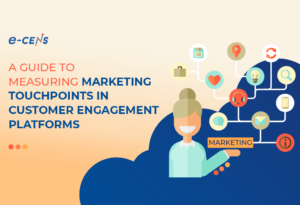As market conditions change swiftly in today’s economy, mobile app analytics tools and the increased granularity of data they deliver are becoming a deciding factor in accurately predicting and adapting to those changes.
With today’s top-performing Mobile App Analytics tools, you can learn virtually anything about your users’ behavior: how they come across your app, their most-used screens, their purchase preferences, and their least-liked features. With such a varied pool of insights, it’s important to know which metrics deliver the most value to which teams within your enterprise – and how they can be leveraged by those teams.
In this article, we’ll take a look at how Mobile Analytics supports every team in your company: from the marketing department to C-suite.
Table of Contents
Mobile Analytics and Marketing Teams
The ability to initially popularize your app and continually attract new users is an indispensable part of the recipe for your success. In creating effective marketing campaigns that can fuel business growth, Mobile Analytics should be a key ally.
For example, tools that enable audience segmentation (such as Firebase) are vital when designing a new marketing strategy. Leaning on the information provided by user IDs and events, the marketing team can produce targeted promotional content with a much higher conversion rate. And, to know whether the new campaign was a success, the marketing team can check its impact using metrics such as app installs and rates of new and returning users.
For multi-channel marketing efforts, it also pays to know which channels are more effective than others. Once you understand where the majority of your users are coming from – thanks to attribution solutions such as Adjust, deciding on priority channels and budget allocation becomes significantly easier.

Mobile Analytics and Sales Teams
Among the most important sales-related metrics to track are the conversion rate, retention rate, and average order value.
Your conversion rate tells you whether your sales team is applying adequate tactics to promote purchases. Notice a drop? Rooting out user pain points, for example, a laborious multi-screen check-out process, can bring conversion back up and shorten time-to-goal completion.
And how do you persuade people to keep returning to your app even after initial conversion? Monitoring metrics such as average order value, most sought-after items, or most-viewed screens can empower your sales team to create a more enjoyable customer experience – by offering a more direct pathway to a purchase, targeted discounts, and other perks to returning users.
Mobile Analytics and Product Development Teams
Product development teams are all about continuous improvement.
To know which issue needs addressing, be it patching up a small glitch or creating a more inviting UI, developers can consult Mobile Analytics metrics such as average session duration or crash rates.
For frontend and design teams, analyzing session durations and exit pages is helpful in determining which aspect of the app users have the most difficulty with. Other key metrics, like session intervals and screens per visit, are also useful indicators of the ways users engage with the app. To know if your UI and UX are in need of improvement, check-in on these metrics regularly.
For backend teams, some of the most valuable feedback can be derived from performance metrics such as load time, latency, and crash rates. Latency, especially, is considered one of the crucial factors in creating a smooth user experience and ensuring retention.
According to Jakob Nielsen, co-founder of Nielsen Norman Group, the ideal response time between a user making a request and delivery is no more than 1 second. Anything more than that creates impressions of buggy programming and risks loss of the user’s attention.
Mobile Analytics and the Executive Team
While the Mobile App Analytics tools ensure that executives have insight into all information regarding app performance in general, their time is best served by focusing on metrics that have a strong impact on the bottom line and growth projections.
These are:
- Customer Lifetime Value (CLTV)
- Customer Acquisition Cost (CAC)
- Cost Per Install (CPI)
- Average Revenue Per User (ARPU)
- Average Revenue Per Paying User (ARPPU)
Let’s take CLTV and CAC as an example of how the metrics mentioned can influence decision-making.
The cost of customer acquisition is one of the most important business metrics, as it informs you of the amount invested into each individual app download. The goal is, of course, for this sum to be as low as possible – revealing you have high-performing marketing campaigns and an attractive UX.
If CAC, however, ever tops your CLTV, this means your bottom line is suffering, and your return on investment will not be satisfactory. When this happens, the executive team has to face some important questions – do they push on with the current strategy, or rethink it completely? Is there a way to improve lifetime value without further growing acquisition costs?
Regular check-ins on business metrics are there to start and stimulate discussions like these: which help your C-suite retain a firm handle on the company’s performance and maintain clear business goals.
In Conclusion
Every team in your company, from marketing and sales to product development and C-suite, can benefit from Mobile App Analytics.
The granularity of data Mobile Analytics provides you with, enables different departments to zero in on issues within their area of responsibility and enhance their performance significantly.
e-CENS is not an impartial observer of the Mobile Analytics ecosystem. Our team of experts has more than a decade of experience in data management and analysis consulting, and we follow new developments in the world of Mobile Analytics with a watchful eye.
To find out how different teams within your company can benefit from Mobile App Analytics, connect with us today.
The essential guide to Mobile Analytics: eBook
Get the most out of mobile analytics with e-CENS’s essential guide on their most crucial benefit in today’s app-based market economy: instant insight into your App’s performance.





